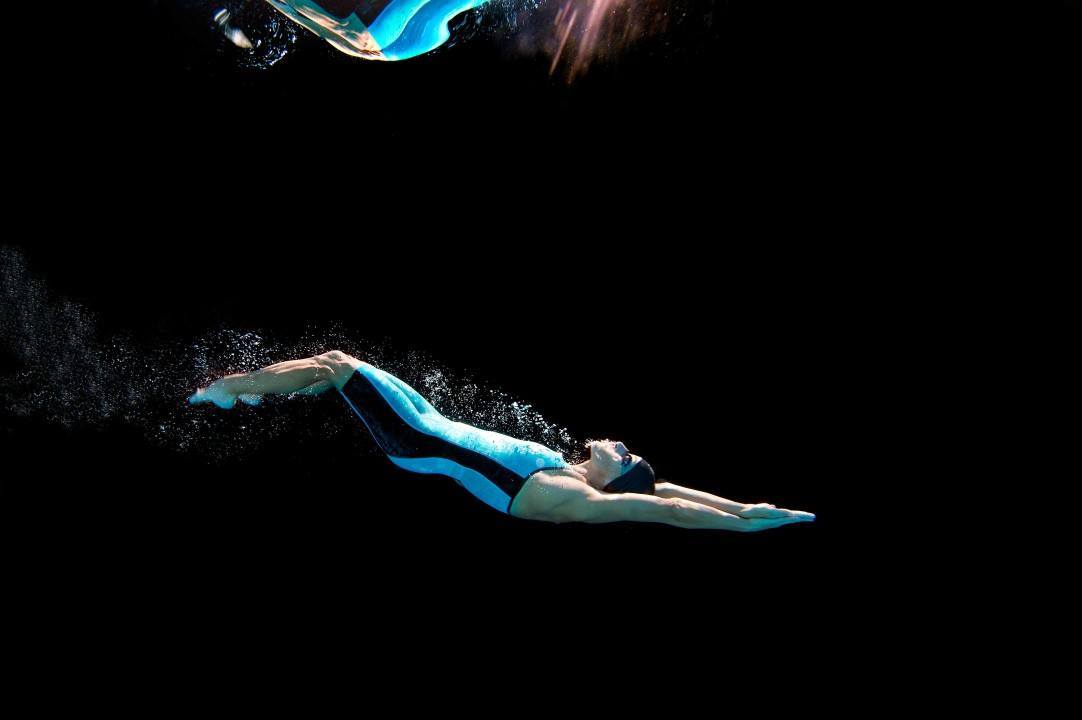What does the future hold for swimming?
That’s a great question, and one that is nearly impossible to answer correctly. However, if you look at where swimming was, where we are now, and take into account a few trends, you can at least make an educated guess.
While there will certainly be unpredictable changes, here are a few thoughts on what swimming will look like in 100 years, as well as the factors that will drive the biggest changes…
Funding will Define the Sport at the Collegiate Level
As Natalie Schumann explains in her SwimSwam article, there have been 35 college swimming programs eliminated since 1993. In a USA Swimming post, Mike Gustafson talks about a college swimmer who had his program cut during his freshmen year, then transferred and had his second program cut the following season. In frustration, he quit the sport.
According to numerous sources, such as Kristi Dosh of The Business of College Sports, football and, in some cases, men’s basketball, fund every other sport, which would include swimming. However, when you factor in football expenses such as coaches’ salaries and recruiting costs, many athletic programs actually fail to make a profit altogether.
But not every college has a big-time football program like Alabama, Texas, Notre Dame, or USC. Does football still play a significant role in funding swimming at your local small college? A report by David Ridpath, an associate professor of sports administration at Ohio University, at conferences not in the “Power Five” (Big Ten, Big 12, SEC, Pac-12, and ACC), as much as 80% of the athletic funding comes from student fees.
So 100 years from now, the fate of college football could shape the fate of college swimming at large, mostly public, universities. If football revenues drop, for whatever reason, it could result fewer college swimming programs at these large state institutions. However, the importance of student fees could also play a role, potentially protecting swimming and other important sports at the American collegiate level.
It may be that in 100 years, college swimming will be dominated by small, local, private colleges that use student fees as the major funding source.
One-Sport Athletes Become Even More Common
100 years ago, it was not uncommon for athletes to participate in many different types of athletic competitions. Athletes participated in swimming, track and field, baseball, boxing, basketball, and virtually any sport that was available. Eventually, one-sport athletes began to take over. Just 20 years ago we had the likes of Dione Sanders and Bo Jackson, who both excelled at football and baseball. Now a multi-sport athlete is virtually unheard of, and one-sport specialization is found in younger and younger athletes.
If this trend continues, in 100 years we may see more swimmers who are entirely dedicated to the sport from an early age. Whether this is a good or bad trend is debatable, but the evolution of the one-sport athlete in undeniable.
Cross-Training Will Be Even More Important
Because of the likelihood of more one-sport athletes, the need for cross training could also rise in the next 100 years. Does that sound counter-intuitive? Here’s the reasoning: when you train for a single activity, the likelihood of injury is enhanced. While swimming is a low-impact sport (as opposed to, say, running) the chances of injuring a shoulder or leg muscle are higher if all you do is swim lap after lap after lap.
To maintain fitness and avoid repetitive-motion injuries, we may see more cross-training among swimmers, even when they are not participating in other sports.
Athletic-Specific Foods and Beverages Evolve
100 years ago, there was no Gatorade, no protein bars, and no post-workout shake mixes. While we have no way of knowing what the diet of swimmers will look like in 100 years, it certainly won’t stop changing. It may involve new discoveries in nutrition, or an entirely new way of thinking about carbs, calories, or fats. But it will change, that’s for certain.
Connected Technology is a Part of Training and Competition
Technology is continuing to change how we work, live, and play. It will also affect how we swim. With wearable technology (think FitBits for swimming) becoming more present, you can expect to see more tracking and data-driven training in the pool. In 100 years, you could easily see digitally-connected swimsuits that monitor vitals, speed, stroke rate, and many different data sets.
How will this information be used? By monitoring real-time and post-workout data, swimmers will be able to create highly-refined training plans that create the most effective race performances.
Current Records Will Be Broken Multiple Times
100 years from now, the most records we see today will be broken multiple times over. Consider the records from 100 years ago. In 1916, the record for 400-meter freestyle was 5 minutes 21 seconds. That record has now been broken by over 1 minute and 40 seconds.
In another century, swimmers who have been focusing entirely on swimming from an early age, using advanced diet programs, training schedules, and innovative technology, will look back on 2017 and see primitive swimmers. They’ll also look at our current record times a leisurely lap for any elite swimmer!
 About Take Your Mark Sports LLC
About Take Your Mark Sports LLC
Take Your Mark Sports™ LLC specializes in the development, manufacture, and marketing of body marking products for athletes. SportSafe™ markers were born out of the need for young swimmers to safely mark their event, heat and lane numbers on their bodies for swim meets. Since then, innovative new marking products have been developed for a variety of sports including triathlons, obstacle races, swim meets, running events, CrossFit competitions, open water swimming, roller derby, wrestling meets, volleyball tournaments, football camps, lacrosse camps, and more. All SportSafe™ inks and tattoos are made in the USA with FDA compliant cosmetic ingredients.
Courtesy of Take Your Mark Sports, a SwimSwam Partner.

This is the future of swimming in 3 years, not 100.
The year is 2120, an aging Boomer Phelps Jr is coaching team USA at the very first Olympics on planet Mars. As his son, Cannon Phelps, breaks his 28th world record in the 100m Fly in 42.21, they wheel the frozen head of Michael out onto the pool deck, put a pair of goggles on it, and let him swim one last time.
It won’t exist at all. Haven’t you guys seen Mad Max?
In all seriousness, I don’t think college swimming will be the same at all. First, I don’t think the NCAA will be a thing in 100 years (and, honestly, I think that’s a good thing). Also, the way the costs of college are inflating, at least in the U.S., many students and their families are taking a closer look at what their fees are paying for… I would be extremely surprised if students were still putting up with covering the athletic department’s expenses in 100 years. My guess is athletic scholarships will not exist in 100 years.
On a related note, I don’t think college itself will look the same in 100 years. The classic college format is not going… Read more »
Although, even in coastal areas we may not have recreational swimming.. With recent projections of our current rate of dumping, the ocean might have more plastic than salt in 2117.
Doing different sports, Jim Thorpe, every track and field event like Bruce Jenner plus the swimming, fencing, horseback riding, and running. Baseball and Football also.
in 100 years, Dressel’s 40.00 will be lowered by 15 seconds. You heard it here first.
and 40.00 will be a leisurely lap for any elite swimmer!!
I’m pretty sure that there would be no competitive swimming at all. The human society will evolve to the level when it will be considered immoral to be awarded just because someone gets natural physical advantages. Same as with handicapped people. We don’t want them to feel being inferior just because of some misfortune happened to them at some point of their life.
Don’t forget that original Olympic Games wasn’t about Sport at all. It was a substitute to the war.
Besides the moral consideration there will purely practical reason. The anti-doping war will become so expensive and the borderline will get so vague that it will be found to be wise to stop this competitive nonsense once and for all. We still will value world records though. I see nothing wrong with that.
Wait, we won’t value competition but will value world records? Your reasoning was that 1) competition makes some feel bad, basically, and 2) anti-doping will be too expensive. So if people really become that sensitive (please no) then wouldn’t those who don’t hold the record, or fail to break it or whatever, feel bad? And wouldn’t everyone who puts up a time have to be tested for doping? And the fact that people would still be gunning for these world records implies competition in the first place!
I sure hope sports don’t go anywhere. They’re fun to watch, fun to participate in, get people in better shape, and teach values that can’t be taught elsewhere.
You got me right with one exception. I was talking about competitive sport, not about the Sport in general. Competitive sport requires losers, the Sport doesn’t. Testing world record breakers for doping is in thousands time cheaper and easier than do it at numerous meets and competitions. Just because it doesn’t happen very often.
But honestly speaking I’m more interested in how the swimming competition will look like in Budapest this year or in Tokyo in 2020 when I hope to be still around than in 100 years. Who cares?
If Leah Smith has a daughter I hope she swims and breaks KLs records :)) if someone doesn’t beat her first.
I think the changes in last 100 years even last 50 are more than will be, but who knows. We now have fast caps n suit n goggle, n shaving as staples that didnt used to be done. In 2009 we even cut back some of the technology. It will n interesting to see in 40 or 50 years, how it has progressed through outer lifetime